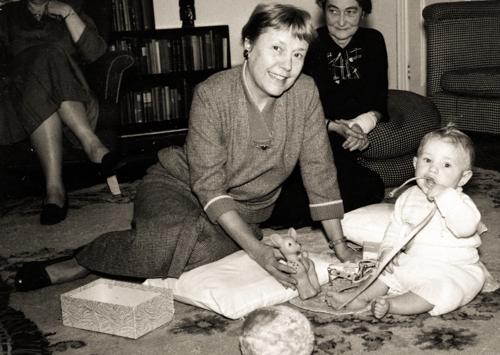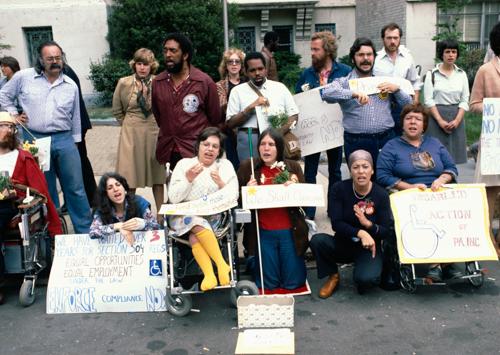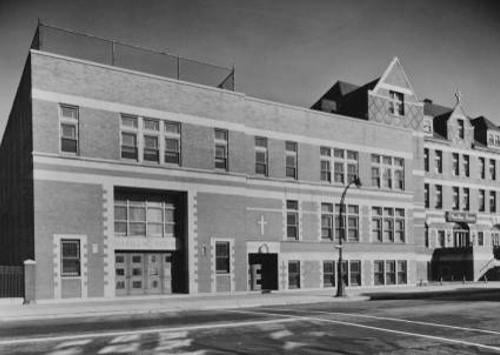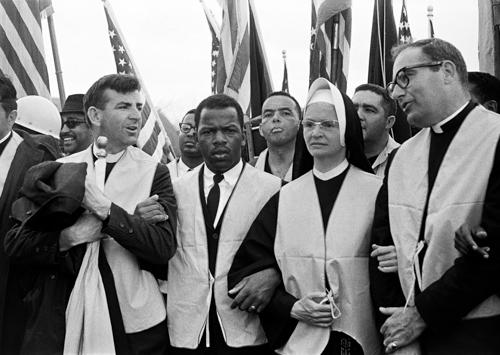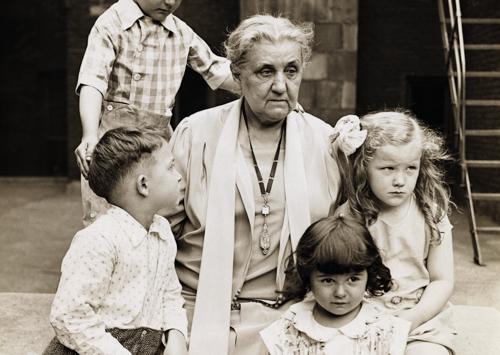Listen to New Voices on Studs Terkel our partnership with 826CHI-here! Read the Story
-
Tribute to Charlotte Towle
1967 Tribute to Charlotte Towle with Ner Littner, Pearl Rosenzweig, Alan Wade and Dame Eileen Younghusband.
-
Susan Nussbaum and Michael Pachovas discuss the Disabled Americans Freedom Rally with Studs Terkel
Feb. 28, 1981 Susan Nussbaum, founder of Access Living and Michael Pachovas founder of Disabled Prisoners Program discuss the upcoming Disabled Americans Freedom Rally in the backdrop of the International Year of the Disabled Persons and President Reagan's budget cuts. Society needs to understand that expenditures are required to secure the rights of disabled people to live active, productive lives. They need to be able to get out of their apartment buildings or homes, travel on sidewalks and ride buses. That may require access ramps, working elevators, cut curbs, and hydraulic buses to lower steps.
-
Studs Terkel talks with members of the Mattachine Midwest organization
Feb. 19, 1970 Content Warning: This conversation includes racially and/or culturally derogatory language and/or negative depictions of Black and Indigenous people of color, women, and LGBTQI+ individuals. Rather than remove this content, we present it in the context of twentieth-century social history to acknowledge and learn from its impact and to inspire awareness and discussion. Discussing homosexuality and American society and interviewing members of the Mattachine Midwest organization: Jim Bradford, Valerie Taylor (pen name of Velma N. Tate, 1913-1997), and Henry Weimhoff.
-
Sister Mary William discusses the importance of Marillac House
Apr. 10, 1968 Content Warning: This conversation includes racially and/or culturally derogatory language and/or negative depictions of Black and Indigenous people of color, women, and LGBTQI+ individuals. Rather than remove this content, we present it in the context of twentieth-century social history to acknowledge and learn from its impact and to inspire awareness and discussion. When she was a teenager, Sister Mary William told her parents that she wanted to become a nun. Sister Mary wanted to become a nun so that she could love and help many people.
-
Lois Wille discusses the many problems at Crane High School
Dec. 14, 1965 Lois Wille caused an uproar with the story she wrote for the Chicago Daily News, "Inside a Slum High School." According to Wille's investigation, a lack of money, over crowding of students, lights that don't work in the school and no books were among some of the problems that Wille found at Crane High School. Students also had a pessimistic view, explained Wille, as she found students didn't believe the teachers and counselors cared what theyd do after they got out of high school but they just wanted them to get out and leave Crane.
-
John Bailey, Robert Tucker, and Dick W. Simpson discuss housing and transportation ; part 4
Oct. 9, 1974 Dick Simpson's book, "Chicago's Future: An Agenda for Change," is discussed with the author, John Bailey and Robert Tucker, all employees of Chicago universities. The group discusses housing and transportation issues that many working class citizens face. The group discusses possible ways to fix the issues including government help and re-zoning.
-
John A. McDermott and Sister Mary Peter discuss Catholic Church's Participation in Civil Rights Movement
Sep. 15, 1965 John A. McDermott and Sister Mary Peters discuss Catholic Church's Participation in Civil Rights Movement. Includes interview with unknown Catholic man opposed to nuns' and priests' involvement. Includes song "It Isn't Nice" by Judy Collins.
-
Jo Freeman, Mary Jean Collins-Robson, and Naomi Weisstein discuss women's rights and liberation ; part 1
Mar. 25, 1970 Jo Freeman, Mary Jean Collins-Robson, and Naomi Weisstein discuss women's rights and the struggle for equal rights and liberation, Title VII, their support for NOW, the National Organization of Women, as well as the upcoming Women's Strike for Equality.
-
Jimmy discusses work ethic and dreams; Carolyn and May Rose discuss daily life, and worries; part 2
1968 Jimmy discusses work ethic and pride. High school students Carolyn and May Rose describe a typical day, future plans and worries. All talk about what the world would look like if they were God. Part 2
-
Jessie F. [Florence] Binford discusses Jane Addams
Jun. 2, 1960 Ms. Binford talks with Studs about Jane Addams' life and her dedication to social service with the women and children of Chicago. Ms.Binford discusses the creation of Hull House and the associated buildings and how deeply in need they were of the help.
-
Jan Bauer, Mary Garrity, Ann Griffin, and Harry Wells discuss Chicago law system and community groups
Mar. 13, 1978 Jan Bauer, Mary Garrity, Ann Griffin and Harry Wells discuss crime, poverty, law, and community relations. They each come from different community programs which are trying to make Chicago safer for everyone.
-
James and Ann Harper discuss their social center, "Save the Alcoholic"
Jun. 25, 1980 James and Ann Harper join Studs Terkel to discuss their personal stories and the work of their social center called Save the Alcoholic, located in the Uptown neighborhood of Chicago. James discusses his struggle with alcoholism and how his experiences influence the mission of Save the Alcoholic. Ann says its often hard to work with “Skid row alcoholics,” but ultimately, they both believe it’s important to help those who are alienated by society, despite their frustrations.


